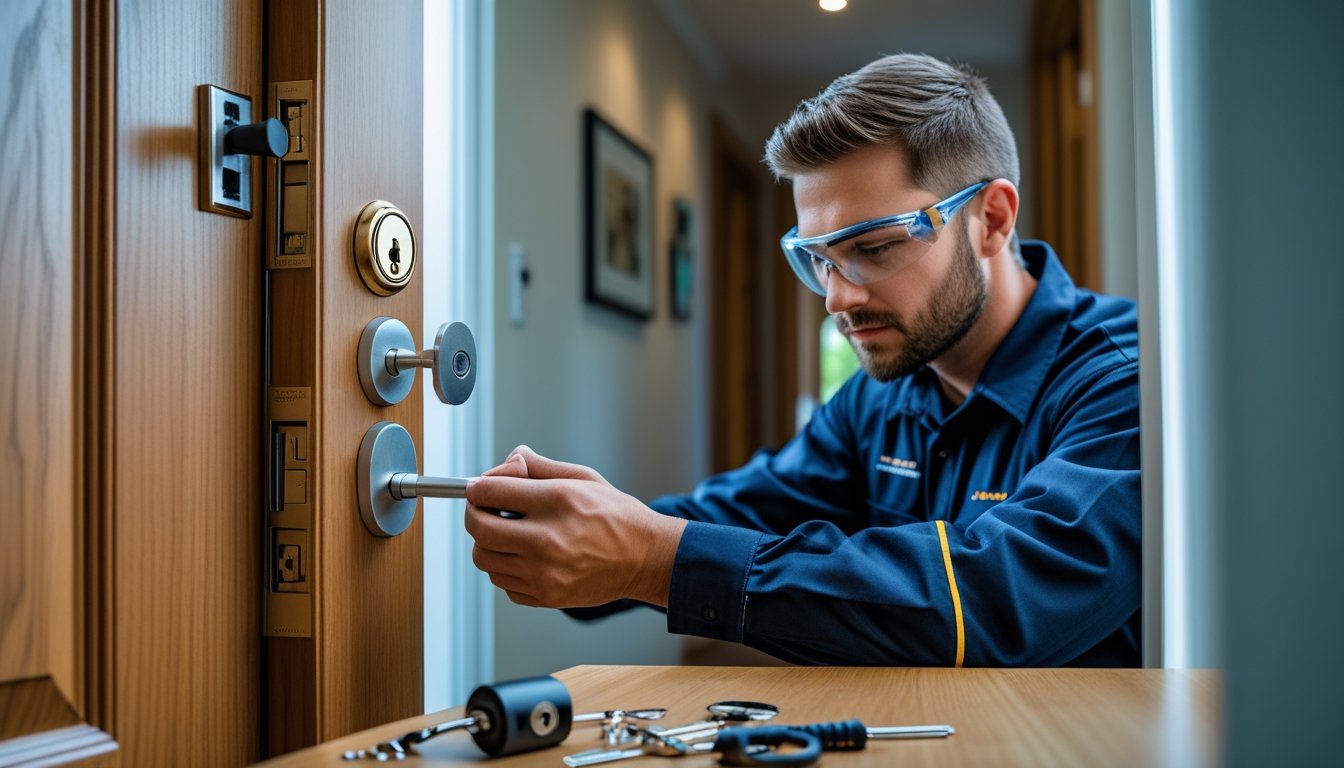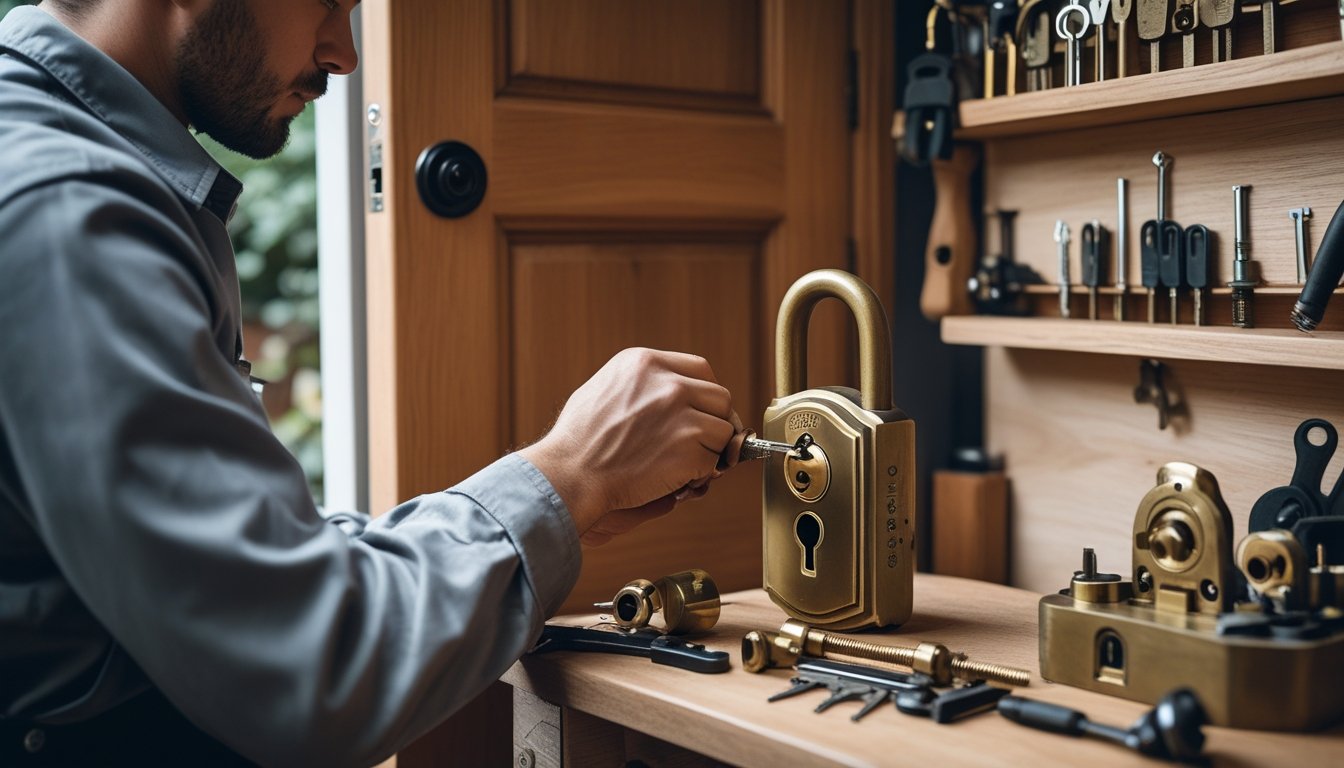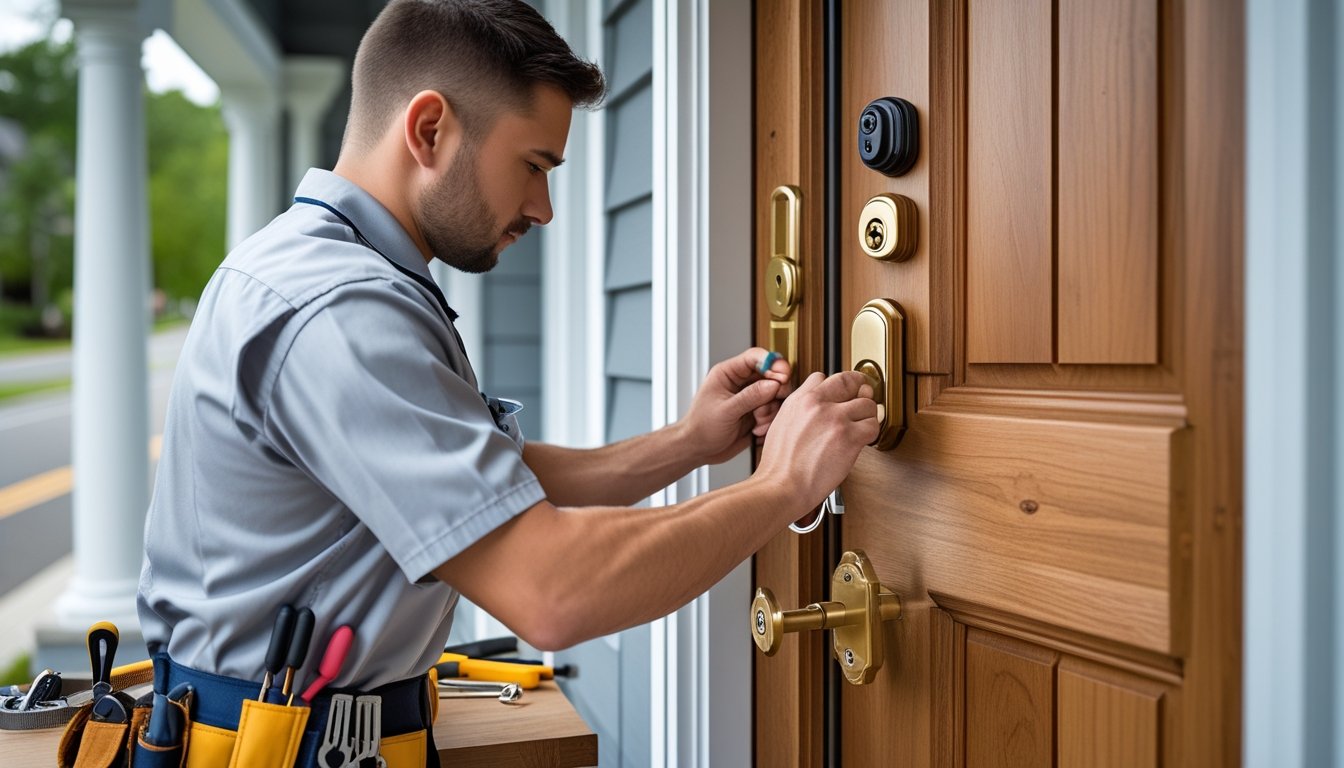Late updated: 28 Oct 2025 15:10
Written by: Elena Prescott
Enhancing Home Safety With Traditional Locksmith Methods: Time-Tested Techniques
Traditional locksmith methods may seem antiquated in today's tech-driven world, but their value in enhancing home security remains undeniable. These techniques provide a personalised approach to lock installations and repairs, offering robust security options that are often overlooked in the rush to adopt more modern technologies. By incorporating tried-and-true locksmith methods, we can fortify our homes against intruders while maintaining a level of simplicity and reliability.

Many homeowners feel a sense of security from the tangible nature of traditional locks. Despite the rise of smart locks and electronic security systems, the effectiveness of a securely installed deadbolt cannot be dismissed. These methods often involve customised solutions tailored to the specific needs of each home, ensuring a level of protection that prepackaged digital solutions may not provide.
In a rapidly changing security landscape, it is crucial to explore all available options. Traditional locksmithing offers peace of mind through its proven track record and personalised service, making it a viable option for those looking to balance modern solutions with time-tested techniques. Let's explore how these methods can play a part in a comprehensive home security strategy.
Key Takeaways
- Traditional methods offer tailored lock solutions.
- Deadbolts and physical locks provide tangible security.
- Combining modern and traditional techniques enhances safety.
Traditional Locksmith Methods for Enhancing Home Safety

Exploring how traditional locksmith methods secure our homes reveals their enduring importance. Techniques like traditional locking mechanisms, key cutting, and master key systems provide a reliable foundation for home security. Let's delve into these methods and their benefits.
Role of Traditional Locking Mechanisms in Home Security
Traditional locking mechanisms, such as deadbolts and mortise locks, serve as essential elements in our home security strategies. These locks have stood the test of time, offering robustness and reliability. Deadbolts, with their simple yet sturdy design, resist forced entry attempts, offering increased protection.
Mortise locks offer not just strength but versatility too. They can be combined with additional security features, like door chains, to further increase safety. By utilising these established systems, we ensure a fundamental layer of security that endures despite evolving technology.
Key Cutting and Rekeying for Personalised Safety
Key cutting and rekeying are indispensable to maintaining personalised home security. Key cutting involves replicating keys from an existing one, providing convenience and ensuring easy access for family members. Rekeying, on the other hand, changes the internal mechanism of the lock so it operates with a new key.
This method proves vital if keys are lost or compromised. Both techniques empower us to control who has access to our homes, allowing us to manage our security needs without the need for expensive replacements.
Master Key Systems in Domestic Environments
Master key systems offer a practical solution for managing access within a household, allowing multiple locks to be operated by a single master key while each lock still has its own unique key. This system provides convenience without compromising security.
We can assign different access levels to family members or house staff, making it easier to manage large homes with multiple entry points. This flexibility creates a more streamlined approach to home security, handling both privacy and accessibility.
Advantages of Mechanical Locks Over Electronic Alternatives
Mechanical locks offer advantages over electronic alternatives by ensuring reliability without dependency on electricity or batteries. These locks function consistently in power outages, unlike electronic locks which depend on power or backup systems.
Additionally, mechanical locks discourage hacking attempts which might target digital systems. They provide a high degree of physical security, with the simplicity of design that also reduces maintenance concerns. Mechanical locks ensure that security remains stable, reliable, and independent of technological changes.
Implementing and Maintaining Traditional Security Features

In ensuring effective home security, we focus on selecting reliable locksmiths, regular maintenance, and blending traditional methods with modern innovations. Achieving robust security requires diligence, informed choices, and continuous upkeep.
Choosing the Right Locksmith for Your Home
Selecting a competent locksmith is pivotal for installing and maintaining traditional security features. We must prioritise professionals who have a solid reputation, verified credentials, and experience with various lock types. It's beneficial to seek referrals from family and friends, as personal endorsements often ensure reliability.
Checking online reviews and ratings can offer additional insights into a locksmith's reputation. Transparency in pricing and services, including emergency support, is essential. By partnering with a trusted locksmith, we ensure our security measures are correctly implemented and any potential vulnerabilities are effectively addressed.
Routine Inspection and Servicing of Locks
Routine inspections are a cornerstone in maintaining locks' longevity and effectiveness. We should schedule regular checks with our locksmith to detect wear or damage early. During these inspections, components like strike plates, deadbolts, and latch mechanisms should be examined for proper alignment and function.
Regular lubrication with suitable products can prevent rust and ensure smooth operation. If any issues are identified, immediate repair or replacement is crucial to prevent security breaches. Keeping a record of maintenance activities helps in tracking the lifespan of each lock, ensuring we replace them before they fail.
Integrating Traditional and Modern Security Measures
While traditional locks are fundamental, integrating them with modern technologies maximises security. We can enhance traditional locks with smart locks for added convenience and safety. By doing this, we benefit from features like keyless entry and remote monitoring.
Smart technologies can be synced with traditional systems to create a layered defence strategy. This integrated approach allows us to retain the reliability of traditional locks while embracing advancements in security. Balancing these aspects requires careful planning and expert advice to ensure seamless and efficient operation.
Frequently Asked Questions
Our goal is to address common concerns regarding home security and the use of traditional locksmith methods. We'll explore the effectiveness of various locks, maintenance schedules, and steps to enhance existing security features in your home.
What are the most reliable types of locks for residential properties?
Traditional deadbolt locks remain a solid choice due to their robust construction. In addition, mortice locks often provide a strong level of security. These types prove particularly effective when installed by a professional locksmith, ensuring the mechanisms operate optimally.
How often should I have my home locks serviced to ensure maximum security?
Regular maintenance of locks can significantly boost home security. We recommend servicing residential locks at least once a year. This includes checking for any wear and tear, potential weaknesses, and ensuring that all components function correctly.
Are traditional deadbolt locks secure enough for modern homes?
Deadbolts continue to be a reliable security option for modern homes, especially when combined with other security measures. When installed properly, they are resistant to forced entry techniques. The quality of the deadbolt and installation is crucial for maximising its effectiveness.
What steps can I take to improve the security of my existing door locks?
Consider adding reinforcements like strike plates and door jammers. Replacing basic screws with longer ones can further increase security. Regular lubrication and ensuring the door frame is solid can also enhance lock efficiency.
How can I assess the vulnerability of my home's locking mechanisms?
Conduct a self-audit by inspecting locks for ageing or corrosion. Check the sturdiness of the door frame and strike plate. Consulting with a professional locksmith will provide a comprehensive evaluation and recommendations for improvement.
Can upgrading to high-security locks significantly reduce the risk of break-ins?
Upgrading to high-security locks with features such as anti-pick pins and drill resistance can substantially lower break-in risks. These enhancements serve as effective deterrents, offering a heightened sense of safety for homeowners seeking added security.
